|
Seniors are no different than the rest of the world. Young and old alike, we love to hear and be heard. It can be challenging when there are so many factors that can fight against those two needs. It takes a ton of work and intentionality to make sure that our seniors are truly being listened to, and that we're actually hearing and processing what they are saying to us!
There are lots of obvious hindrances to good communication. It's a simple fact that as most people age, they begin to have various types of hearing problems. There could be loss of hearing in one or both ears, diminished hearing that is being supplemented with hearing aids, or a condition like tinnitus that produces ringing sounds, whistle noises or pulses in the ear to the senior. All of these contribute to the problem with clear and effective communication. Others might have had a history of chronic exposure to loud noises, causing damage to the ear drum. Many seniors struggle with keeping their ears clean, leading to a build up of excessive earwax, and increasing the chance of ear infections. Signs and symptoms of hearing loss may include one or more of the following:
In some instances it may be the "talker" or the "listener" who are the problem. If those talking are not speaking clearly, or not facing the individual while talking to them it makes it difficult for the listener to hear or understand. In other situations, either a chronic condition like autoimmune ear disease, acoustic neruoma or physical injury to the head could cause hearing loss. In addition, there are some medications like ototoxic meds that can contribute to hearing difficulties. Whatever the causes or causes of hearing loss, it is a frustrating issue for everyone involved. Take these simple steps to help diminish the effects of hearing loss.
Communication Matters, it really does! Do everything you can to help your senior stay connected to you and others by addressing any hearing problems in thorough, loving and practical ways!
0 Comments
As we age, many times those things which were easy or mundane might become difficult or unsafe for us to do. Driving is one such task. Lots of seniors began driving a car even before they were of legal age, so they might have 50, 60 or even 70 years experience in driving!
Many factors may contribute to whether or not the senior needs to continue to drive or drive alone. Among those are: * Worsening Vision- cataracts, poor night vision or glaucoma may have diminished their ability to safely navigate. * Diminished Reflexes- As we age, our ability to process and react to the situations around us can slow or greatly diminish. This could lead to accidents that might damage property or people. * Memory Issues- Memory loss is natural as we age, but for individuals with conditions like Alzheimer's, dementia, Parkinson's and other similar conditions might become disoriented. As a result, they may forget locations or directions to places they have travelled to for years, up to and including their own homes. * Physical deterioration- Not only their vision issues, but also issues like stamina, joint pain, arthritis in their hands, hips or shoulders, and back pain can make something as simple as driving to the grocery store a dangerous venture. So what are caregivers supposed to do when their elderly parent or loved one insists on driving, and yet we know it's not a safe or good idea? Here are a few suggestions to consider. First, have a talk with someone in their life who represents authority, someone they respect. This might be their primary care physician, an attorney, a pastor or close friend of theirs. Many times when the same advice that was given by family comes from someone they consider to be an "authority", the individual will accept the counsel and act on it. Share your concerns with the authority figure, and ask if they would be willing to intervene. Next, offer to do the driving for them. It could be that their hesitancy to "giving up the keys" is rooted in a fear that if they do, then they will be homebound, and at the mercy of others for their transportation needs. If you are initiating the offers to drive them to church, the store or to the park, then you might find the transition from driver to non-driver is easier for your senior to accept. Consider hiring a caregiver to drive them, or run errands for them. Families who find themselves in the "Sandwich Generation", stuck between caring for ailing parents while still meeting the needs of their own spouse and children can find relief by enlisting the aid of a home care company. There are many reputable companies who can provide qualified and safe drivers to transport your loved one. A slightly more drastic measure might simply be to take the keys or remove the car from the premises. This can be a dangerous approach. If the car is titled in the name of the senior, and it is taken against their will, they are within their legal rights to report it stolen... and some have done just that! As a last resort, the family may have to take legal action to become a guardian. If awarded the guardianship, the guardian has the legal ability to prevent the senior from driving by taking the car keys away, or selling the car. This action should only be taken after all other avenues have been tried, as it can cause serious relationship and trust issues in the future. Whatever you decide to do, communicate a lot about this issue with other family members, care professionals and your loved one. It's best if this decision is reached as a group decision, rather than an unpopular or disagreeable decision for the loved one involved. Driving matters, and so does safety. Talk it out, brainstorm your options, and determine how quickly decisions have to be made. When that time comes, move decisively and lovingly. You'll be glad you did! Page Cole Agency Director/Dealer in Hope Visiting Angels of Tulsa Visiting Angels of Bartlesville Visiting Angels of SWOKC Seniors are living longer, and families are increasingly called upon to provide some type of caregiving assistance in the home to protect their health and well being. As they are called upon to assist with personal care needs, as well as the various Activities of Daily Living, these family members can feel the pinch and pressure of their already full calendars. The "Sandwich Generation" can quickly find more on their plate than they are able to handle!
When the need for care becomes more than the family can provide, it's a safe bet that something has to change. While some families opt for moving their loved one to a Assisted Living or Long Term Care facility, others enlist the aid of a Home Care Agency. These agencies are able to provide trained, licensed and qualified staff who can provide assistance to seniors in their home. Many seniors can safely stay in their own homes with 12 to 20 hours a week of help from a caregiver. This is not only an option, but it's both a healthier and less expensive option than facility care. Seniors who stay in their own home tend to live longer, healthier and happier lives than those forced to move into a care facility. If the individual needs a minimal amount of homecare, it is much, much less expensive than facility care. While home care for 20 hours per week can cost between $25 to $30 per hour, ($500 to $750 per week), the cost for assisted living can cost between $3,500 to $5,000 per month! At Visiting Angels, we pride ourselves on our rigorous hiring process! We do a five panel drug test with all applicants, and perform a nationwide fingerprint based background check! Our staff are covered by Workmen's Comp, as well as a million dollar liability insurance policy! Families who hire private caregivers run the risk of being financially responsible if the caregiver is injured on the job, or there is a problem with the caregiver in any way. Research agencies... check out their reviews on Google! See what other people are saying about them, and make your decisions accordingly! Don't wait until you are totally burned out to ask for help! Allow a good agency to send help, and then you go be the "son", "daughter" or family member! Click here for more information! www.visitingangels.com/bartlesville  Today is my daughter's birthday... She is my oldest, the first one to make me a "daddy". I love my two sons just a much, but there's something special about a "daughter/daddy" relationship. The same goes with my boys and the relationship they have with their mom. Today I took her out for a birthday lunch, just the two of us. We will do the family birthday dinner tomorrow night, but it was a great time for her and me to just hang out. One of things I have on my repeating task list is to periodically ask my kids about their "bucket list". I've challenged each one of them to dream- about things they would like to own, places they would like to visit, things they would love to experience, and so on. I want to visit with them about their dreams so I can dream with them, and help support them in their pursuit of those dreams. That means planning for the future, setting priorities and sometimes making hard decisions in life. Why do I do it? I mean, I really do have enough on my own plate to keep me busy, and they are grown adults! I do it because I love them, and I want the very best for them. In a nutshell, isn't that what it means to discuss, plan for and engage the topic of home and health care with aging parents? We love them, and we want the very best for them. For a quality future, living where THEY want to live, it does require planning for the future, setting priorities and yes, sometimes making hard decisions. Why go through all of that? You know the answer to that question. Because you love them, and LOVE MATTERS! There are so many issues when it comes to caring for aging parents! I'd love to recommend a great resource for your consideration. Check out "Taking Care of Mom & Dad: A Beginner's Guide to Caring for Your Parents" (click link to check this out on Amazon). This fantastic resource was authored by 17 different Visiting Angels Franchise Owners from around the country, most of whom have a decade or more in the home care industry! Love is fulfilling, it's exciting and it's a part of who we are when we are at our best. But more than that, Love Matters, and love is worth the time and effort it takes from us to do it well. So get out there, and if your parent or parents are still living, have some of those conversation! Love Matters! It seems no matter what part of the state you live in, the winter time is famous for it's "mood swings"! Especially in Bartlesville, Oklahoma, you may wake up to a day with an expected high of 60 degrees, with a forecast for sleet, snow and a 15 degree high the next day! Temperature swings can wreak havoc in the lives of our elderly if we are not diligent in helping to protect their health with the best clothing choices.
Obviously it is very important if the weather is chilly (for many seniors, that's anything under 70 degrees) that you will need to make sure they dress in such a way to keep them warm, both inside their home, or outside when headed out to do various errands. Encourage them to dress in "layers", so that should they become to warm they can easily shed part of their outfit. For instance, wearing a comfortable shirt or blouse, layered with a light sweater, and then a coat on top of that if the trip takes you out into cold weather. Once you arrive at your destination it is easy to remove the coat and/or the sweater so that they don't become too hot or too cold. Remember "HHF"... that stands for Heads, Hands & Feet. It is vital to keep these three areas warm AND dry. The head may need a scarf, hat, beanie or other warm head covering. The popularity of gaiters (stretchable face coverings) can also be a good choice as long as it doesn't inhibit their breathing. There a variety of styles and types of gloves or mittens one can choose from to keep the hands warm. Finally, it's important to keep those feet warm- whether that means wearing socks and slippers in the home, heavier socks for wearing outside in cold weather, or even the need for galoshes in the event you will be tracking to rain or snow. One final note... as a caregiver it is important for you to remember that our wonderful seniors not only want to dress in a way to keep them healthy, but they also like to look good doing it! Make sure you give attention to their appearance, and assist where needed so they are happy and proud of their appearance, whether at home or in public!  It is an real but sometimes unpleasant fact of life. As we age many of the things we were able to accomplish with ease in years past have now become more difficult. Everything from opening a jar to remembering where we parked the car or stored a special item is more of a challenge than it used to be! Recently I co-authored a book with the directors of Visiting Angels of Tulsa, Visiting Angels of Bartlesville and Visiting Angels of SWOKC called "Life Hacks for Seniors: Tips and Tricks for Older Americans!" This book is chocked full of fun and creative ideas to make the lives of the seniors we care for a little easier to navigate. There are sections that focus on the unique challenges of dealing with a senior who has Alzheimer's or another form of dementia. There are also sections on Dressing Hacks, Exercise Hacks, Health Hacks, Kitchen Help Hacks, Memory Issue Hacks, Bathing/Toileting Hacks and a large section on Miscellaneous Life Hacks! These tricks and tips are simple, easy to do and/or explain and promise to make the life and activities of your wonderful senior less stressful! For the caregiver who is working as a CNA, Home Health Aide or personal caregiver this book can be an invaluable tool. The simple and fun techniques contained within this resource will create less challenging ways for dealing with the natural consequences that come from aging. As a bonus, the tips in this resource are fun too! You can click on the link below to order the resource from Amazon. If you enjoy it, we are happy to have made your life as a caregiver better, and to have increased the quality of life for your wonderful senior! As you discover new tips or tricks, pass those along to other caregivers to help them out! CLICK HERE TO ORDER THIS RESOURCE! Page Cole Visiting Angels of Tulsa Visiting Angels of Bartlesville Visiting Angels of SWOKC 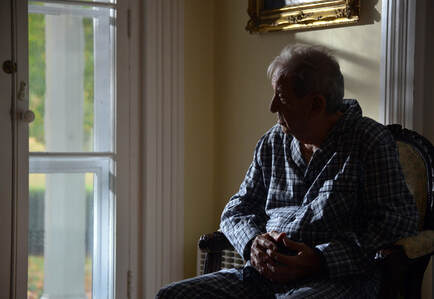 One of the most real and difficult challenge many people face on a daily basis is anxiety. This is even more true for seniors and those who care for them. It comes as a result of so many different forces that impact daily life. It is critical that caregivers involved in the life of seniors help them successfully face and deal with these issues that cause anxiety, as well as managing their own issues. Major life changes are a primary source of anxiety. Moving residences can be extremely stressful. Although aging in place is preferable, many seniors need at some point to transition to an assisted living facility, a skilled care facility, retirement community or move into the home of a loved one. Although this might provide a safer environment, a move from familiar surroundings into new living arrangements can be frightening or stressful. Caregivers are not immune to this kind of stress. Whether they are a family caregiver or a paid professional, the rigors and stress of daily living needs can be a major stressor as well. Another issue that brings stress are changing health concerns. Seniors and their caregivers alike are aging every day, and with age comes new health challenges and limitations. Things like failing eyesight, changes in medication and even the loss of a loved one to death can produce tremendous anxiousness. Changes in blood pressure or blood sugar, advancing dementia or other chronic conditions all carry stress as a side effect of those ailments. Although family is a great source of strength for many, it has the exact opposite effect in other family dynamics. Adult children from the Baby Boomer generation are nicknamed "The Sandwich Generation", because many times they find themselves "sandwiched" between the lives and schedules of their own children and caring for their elderly parents. Seniors can become anxious because they feel like they are being a burden. Caregivers stress because their time, energy and resources are being pulled in multiple directions. There are so many other stressors on the lives of seniors and their caregivers. Death of friends, worries about the future, financial pressure and even stress related to the pets in their lives can weigh down on seniors as well as their caregivers! With all of the anxiety and stress in the world, what can be done to help? Here are some basic suggestions for helping with anxiety:
Anxiety is a part of life. There is nothing we can do to avoid it. Together we can face it and diminish it's affect on our lives! If you need the help of a professional caregiver who is both experienced and trained in helping anxious seniors, why not give Visiting Angels a call? We would love to help! If you are a professional caregiver and would love to be a part of our team, assisting us in caring for seniors, we would love to hear from you too! Page Cole Visiting Angels of Tulsa Visiting Angels of Bartlesville Visiting Angels of SWOKC 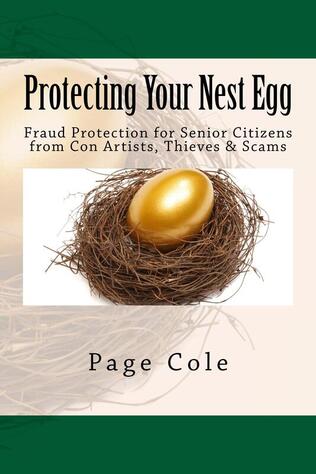 As we age our need for assistance in many areas of life increase dramatically. The opportunity to be a caregiver for a senior is a high calling. It involves meeting a variety of those needs- physical assistance, emotional support, mental encouragement and spiritual help. Another facet of care that many seniors need assistance with is protection and safeguarding of their finances. The elderly are a prime target for scams, con artists and thieves to take financial advantage. It is important that their family and caregivers provide a protective wall between these evil doers and the elderly. There are many things caregivers can do to help keep them safe. First, it is important to communicate regularly with the senior about their finances, and if allowed to do so as a family member, check their accounts to make sure that there are not any unusual withdrawals. Ask the senior to talk to you about their finances, and make yourself available to discuss any concerns they might have regarding their money. Second, be aware that many of the instances of financial abuse of seniors is perpetrated by a family member or close friend. Asking for a "loan", sharing personal financial crises to gain sympathy, or even blatantly taking monies or property from the senior take place on regular basis. Other family and friends need to watch for these horrible cases of "financial friendly fire", and be prepared to address those issues with the senior or with other family members. Third, watch out for scammers who worm their way into the life of the senior via the telephone or print materials. Promises of financial benefits through sketchy investments regularly assault their space through telemarketers and bulk mail. Be on the lookout for these, and respond quickly if you feel they are being taken advantage of. Finally, have an open and honest conversation with the senior about the possibility of scams or people trying to take advantage of the senior. They need to understand how broad and rampant the problem is across the country, and look out for those who might take advantage of them. One easy way to do that is to pick up a copy of the resource "Protecting Your Nest Egg: Fraud Protection for Senior Citizens from Con Artists, Thieves & Scams" and go through it together. It is full of descriptions of common scams, and even a "self test" to see just how likely it is the senior might fall prey to a scam. We love the seniors we care for in our lives. Stand in the gap and protect their hard earned money, investments and property! Page Cole Visiting Angels of Tulsa Visiting Angels of Bartlesville Visiting Angels of SWOKC 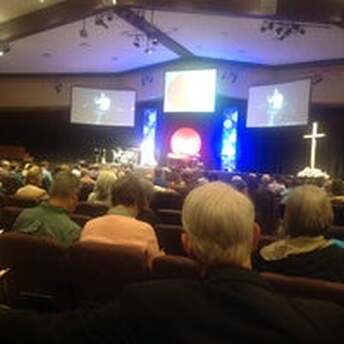 It is no surprise to see the physical, emotional and mental fatigue that comes with the responsibility of caring for others. Every caregiver experiences that truth. But there is a fourth facet that goes unattended in many caregiving situations- faith fatigue. Many people are very committed to the spiritual aspects of life, while others do not see much value in those issues. Regardless of the level of commitment to the spiritual aspects of life, we all have a need to refresh our inner being. Some accomplish this through participating in religious or church activities. Others choose to feed their soul with private meditation, music or acts of service. The issue of greatest importance is not "How" they are nurturing the "faith" portion of their life, but that they are in fact making an intentional effort to keep that part of their life balanced and healthy. Caregiving is a constant pouring out of one's own self into the needs of another. It just makes sense that if you are always pouring out your energy and heart, but not doing something to replenish your innermost needs that eventually you will feel empty or burned out. It is critical that each individual consistently tends to their own inner faith or spiritual needs so they are able to provide the highest level of quality care to those in need. What can you do? Attend religious services, spend time in meditation, read scriptures or religious writings are a few of those healthy options. Listening to edifying music or participating in spiritual events are also ways to feed one's soul. Finally, many individuals find that prayer or quiet contemplation are rejuvenating and can bring balance to their hearts and their soul. This article is not intended to be "preachy" or condescending in any way. It is simply a reminder that human beings are complex creatures, individuals with physical, emotional, mental, social and yes, spiritual needs. Take care of yourself people! You deserve it! Page Cole Visiting Angels of Tulsa Visiting Angels of Bartlesville Visiting Angels of SWOKC 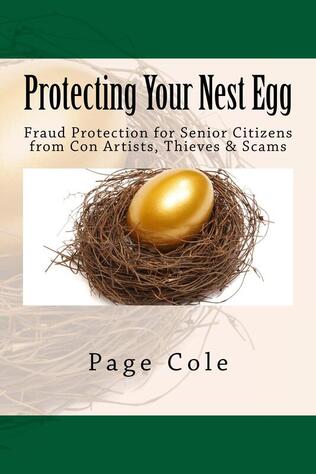 The opportunity to be a caregiver for a senior is a high calling. It involves meeting a variety of needs- physical assistance, emotional support, mental encouragement and spiritual help. As we age our need for assistance in all of these areas increase dramatically. Another facet of care that many seniors need assistance with is protection and safeguarding of their finances. The elderly are a prime target for scams, con artists and thieves to take financial advantage. It is important that their family and caregivers provide a protective wall between these evil doers and the elderly. There are many things caregivers can do to help keep them safe. First, it is important to communicate regularly with the senior about their finances, and if allowed to do so as a family member, check their accounts to make sure that there are not any unusual withdrawals. Ask the senior to talk to you about their finances, and make yourself available to discuss any concerns they might have regarding their money. Second, be aware that many of the instances of financial abuse of seniors is perpetrated by a family member or close friend. Asking for a "loan", sharing personal financial crises to gain sympathy, or even blatantly taking monies or property from the senior take place on regular basis. Other family and friends need to watch for these horrible cases of "financial friendly fire", and be prepared to address those issues with the senior or with other family members. Third, watch out for scammers who worm their way into the life of the senior via the telephone or print materials. Promises of financial benefits through sketchy investments regularly assault their space through telemarketers and bulk mail. Be on the lookout for these, and respond quickly if you feel they are being taken advantage of. Finally, have an open and honest conversation with the senior about the possibility of scams or people trying to take advantage of the senior. They need to understand how broad and rampant the problem is across the country, and look out for those who might take advantage of them. One easy way to do that is to pick up a copy of the resource "Protecting Your Nest Egg: Fraud Protection for Senior Citizens from Con Artists, Thieves & Scams" and go through it together. It is full of descriptions of common scams, and even a "self test" to see just how likely it is the senior might fall prey to a scam. We love the seniors we care for in our lives. Stand in the gap and protect their hard earned money, investments and property! Page Cole Visiting Angels of Tulsa Visiting Angels of Bartlesville Visiting Angels of SWOKC |
AuthorPage Cole is a leader in home care in Oklahoma. He has published the following resources for Seniors- Archives
October 2022
Categories
All
|
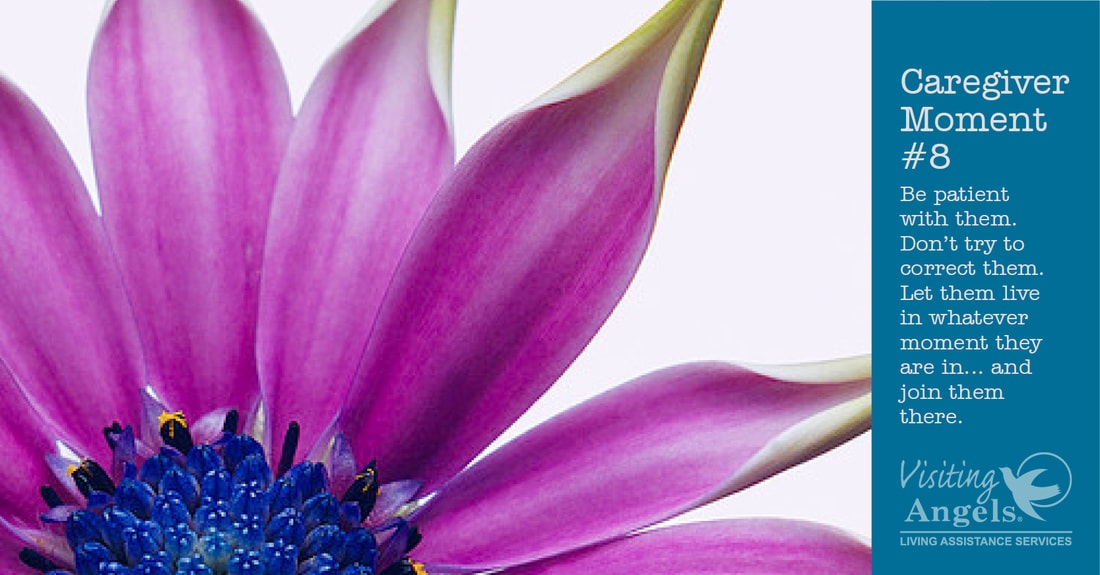

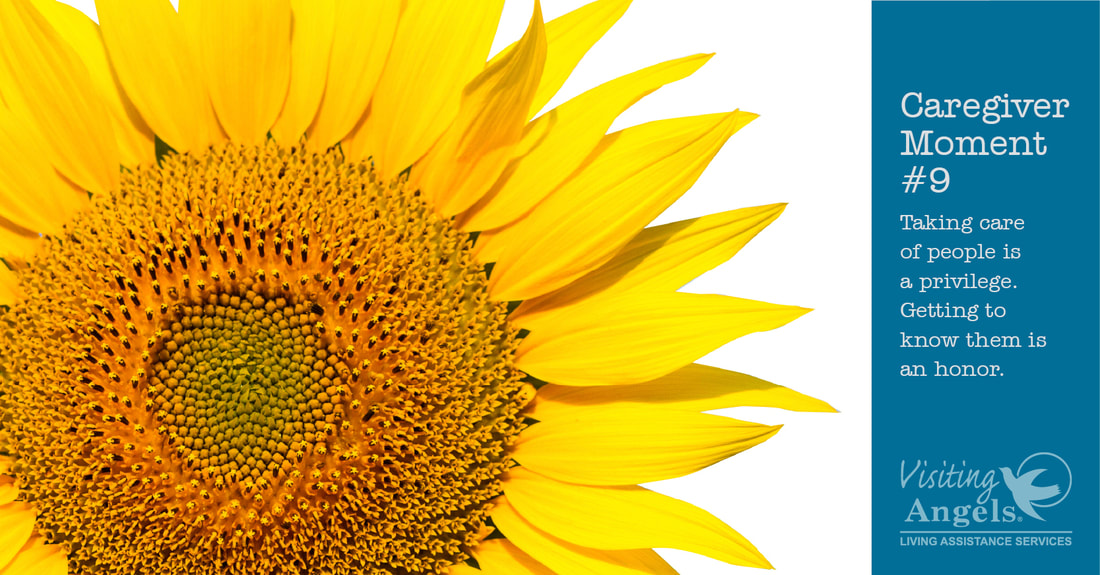

 RSS Feed
RSS Feed
